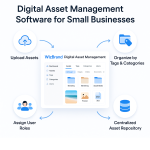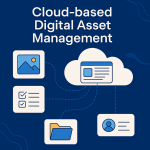Limited Time Offer!
For Less Than the Cost of a Starbucks Coffee, Access All DevOpsSchool Videos on YouTube Unlimitedly.
Master DevOps, SRE, DevSecOps Skills!
DevSecOps: Integrating Security into DevOps Practices
DevSecOps is a modern software development approach that emphasizes the integration of security practices into the DevOps process. It aims to bridge the gap between development (Dev) and operations (Ops) while incorporating security (Sec) throughout the entire software development lifecycle. This approach shifts security considerations leftward in the development cycle, allowing for faster and more secure software delivery.
The Evolution of DevSecOps: Traditionally, security was often treated as a separate phase in the software development process, implemented towards the end of development or during the deployment stage. However, with the increasing frequency of cyber threats and the need for rapid software delivery, this approach became inadequate. DevSecOps emerged as a response to these challenges, advocating for a proactive and continuous approach to security.
Key Principles of DevSecOps:
- Automation: DevSecOps relies heavily on automation to enforce security measures consistently and efficiently throughout the development lifecycle. Automated security testing, compliance checks, and vulnerability assessments are integrated into the pipeline.
- Continuous Integration and Continuous Deployment (CI/CD): DevSecOps embraces the CI/CD pipeline, ensuring that security assessments and checks are performed at every stage, from code development to deployment. This prevents security vulnerabilities from piling up and allows for quick remediation.
- Shift Left: One of the core principles of DevSecOps is the “shift left” approach, where security considerations are moved earlier in the development process. This means identifying and addressing security issues during the design and development phases rather than waiting until later stages.
- Collaboration: DevSecOps promotes collaboration between development, operations, and security teams. Cross-functional teams work together to identify security risks, implement security controls, and maintain a shared responsibility for the security of the application.
- Security as Code: Security policies, configurations, and best practices are treated as code and stored in version control systems. This enables teams to manage security configurations in the same way they manage application code, ensuring consistency and transparency.
- Continuous Monitoring: DevSecOps emphasizes continuous monitoring of applications in production. Security teams monitor for potential threats, unusual activities, and vulnerabilities, enabling swift responses to emerging security issues.
Benefits of DevSecOps:
- Faster Time-to-Market: By integrating security measures into the development process, DevSecOps enables faster and more frequent software releases without compromising security.
- Early Detection of Vulnerabilities: With security assessments conducted early in the development cycle, vulnerabilities are detected and addressed sooner, reducing the risk of security breaches.
- Reduced Costs: Early identification and remediation of security issues prevent costly fixes in the later stages of development or after deployment.
- Improved Collaboration: DevSecOps promotes collaboration between teams, breaking down silos and fostering a culture of shared responsibility for security.
- Enhanced Compliance: Automated compliance checks and documentation ensure that security and regulatory requirements are consistently met.
- Stronger Security Posture: By prioritizing security from the outset, DevSecOps builds a strong security foundation that safeguards applications against evolving threats.
In Conclusion: DevSecOps is a transformative approach that aligns security with the speed and agility of modern DevOps practices. It emphasizes proactive security measures, continuous monitoring, and collaboration to ensure that software is not only delivered quickly but also with the highest possible level of security. By integrating security throughout the development lifecycle, organizations can create a more resilient and secure software ecosystem.





